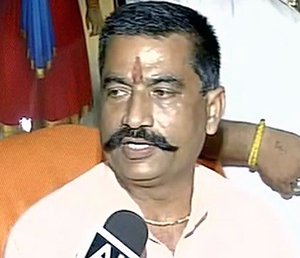New Delhi, Aug 7: With the highest single-day spike of 62,538 cases, India's COVID-19 count rose to 20,27,075 on Friday, said Union Ministry of Health and Family Welfare.
The total cases include 6,07,384 active cases, 13,78,106 cured/discharged/migrated, and 41,585 deaths, according to the Ministry of Health.
The country's COVID-19 positive cases crossed the 10 lakh mark on July 17 when the total positive cases stood at 10,03,832 in India.
Maharashtra with 1,46,268 active cases and 3,05,521 cured and discharged patients continues to be the worst affected. The state has also reported 16,476 deaths due to the infection.
Tamil Nadu has 54,184 active cases while 2,14,815 patients have been discharged after treatment in the state. 4,461 deaths have been reported due to COVID-19 in the state.
Total COVID-19 cases in Andhra Pradesh are 1,96,789 including 1,12,870 recoveries, 82,166 active cases, and 1,753 deaths, as per the last health bulletin.
Delhi reported 1,192 new COVID-19 cases and 23 deaths on Friday. The total count of cases in the national capital has risen to 1,42,723.
According to the Health Department, a total of 1,108 recoveries have been reported in Delhi in the last 24 hours.
The total number of cases includes 1,28,232 recoveries, 10,409 active cases, and 4,082 deaths.
According to the official data, 5,612 RT-PCR/CBNAAT/TrueNat tests and 17,773 rapid antigen tests were conducted today.
A total of 11,43,703 test has been conducted so far. The Union Health Ministry said that India continues its track record of testing more than 6 lakh COVID-19 samples each day for the fourth successive day.
"Expanded diagnostic lab network and facilitation for easy testing across the country have given a boost, and with 6,39,042 tests conducted in the last 24 hours, India has done 2,27,88,393 tests presently. The Tests Per Million (TPM) has seen a sharp increase to 16,513," the ministry said.
As many as 473 new COVID-19 cases were reported in Jammu and Kashmir today; 128 from Jammu division and 345 from Kashmir division.
The total number of cases stood at 23,927 including 7,260 actives cases, 16,218 recoveries, and 449 deaths.
The government of Mizoram informed that 19 new COVID-19 cases were reported in the state, taking the total number of cases to 558.
The number of active cases is 270 while 288 people have been discharged. No death reported in the state to date.
Bihar Health Department said, 3646 new cases reported in the state on August 6. Total tally reaches 71,794.
Similarly, 244 new COVID-19 cases, 77 recoveries, and five deaths were reported in Puducherry on Friday, taking the total number of cases to 4,862, including 1,873 active cases, 2,914 recoveries, and 75 deaths.
1,063 new cases of COVID-19 cases, 381 recovered and 23 deaths reported in Punjab in the last 24 hours. State tally rises to 21,930 including 7,351 active cases, 14,040 cured/discharged and 539 deaths.
Meanwhile, 1,074 new cases of COVID-19 and 22 deaths reported in Gujarat in last the 24 hours. State tally rises to 68,885 including 14,587 active cases, 51,692 cured/discharged and 2,606 deaths, the State Health Department said.
According to the Union Health Ministry, West Bengal has 23,829 active cases with 1,902 deaths so far while, Karnataka has 75,076 active cases of the virus with 80,281 recovered and 2,897 deaths so far.





Comments
He looks like Born Dacoit, he should be behind bars
Add new comment